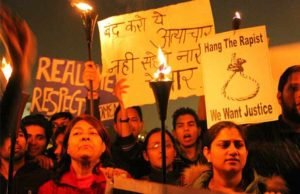People are facing problems after discontinuation of Rs. 500 and Rs.1000 notes

New Delhi : Prime Minister Narendra Modi has taken a strict action to stop the spread of counterfeit 500 And 1,000 Rupee Notes. This Action will be helpful to stop terror activities from across the border and flush out black money. On Tuesday Prime Minister said these notes will be banned and it will be worth the paper they are printed on. There will be no change in any other form of monetary exchange — Demand Draft, cheque, payment via credit or debit cards, he said.A proposal for new 500 and 2,000 rupee notes has been cleared by the Reserve Bank of India.
After discontinuation of Rs. 500 and Rs.1000 notes, People are facing many problems. Banks are closed for two days and people are not able to exchange their notes. Due to not having 100 rupees notes, people are not able to pay to bus-driver, auto-rickshaw, vegetable vendor,metro ticket vendors and etc They are rushing here and there to get 100rs notes. Many people are taking real 500 rupee note in exchange of just 400 rupees(4*100). Already Indian Govt announced all Banks and all post-offices are closed on 9 November and ATM’s will not work on 9th and 10th November.
Must Read : Prime Minister bans 500 and 1000 notes starting 8 November midnight.

500 And 1,000 Rupee Notes are banned
Here’s what you need to do with your 500 and 1000 rupee notes.
Deposit them at the bank or post office from November 10 to December 30
Exchange them from a bank or post office till 24 November. The limit for exchange is Rs. 4000
Take Aadhaar card and PAN Card when you go to exchange notes
After December 30, these can be deposited at the Reserve Bank with a declaration
Tourists can change the notes at airports
Your 500 and 1000 rupee notes be accepted till November 11 at:
Petrol Pumps and government hospitals
Railway, airline, government bus ticket booking counters
Consumer co-operative stores run by state or central government
Milk booths authorized by state governments
Crematoriums and burial grounds



















